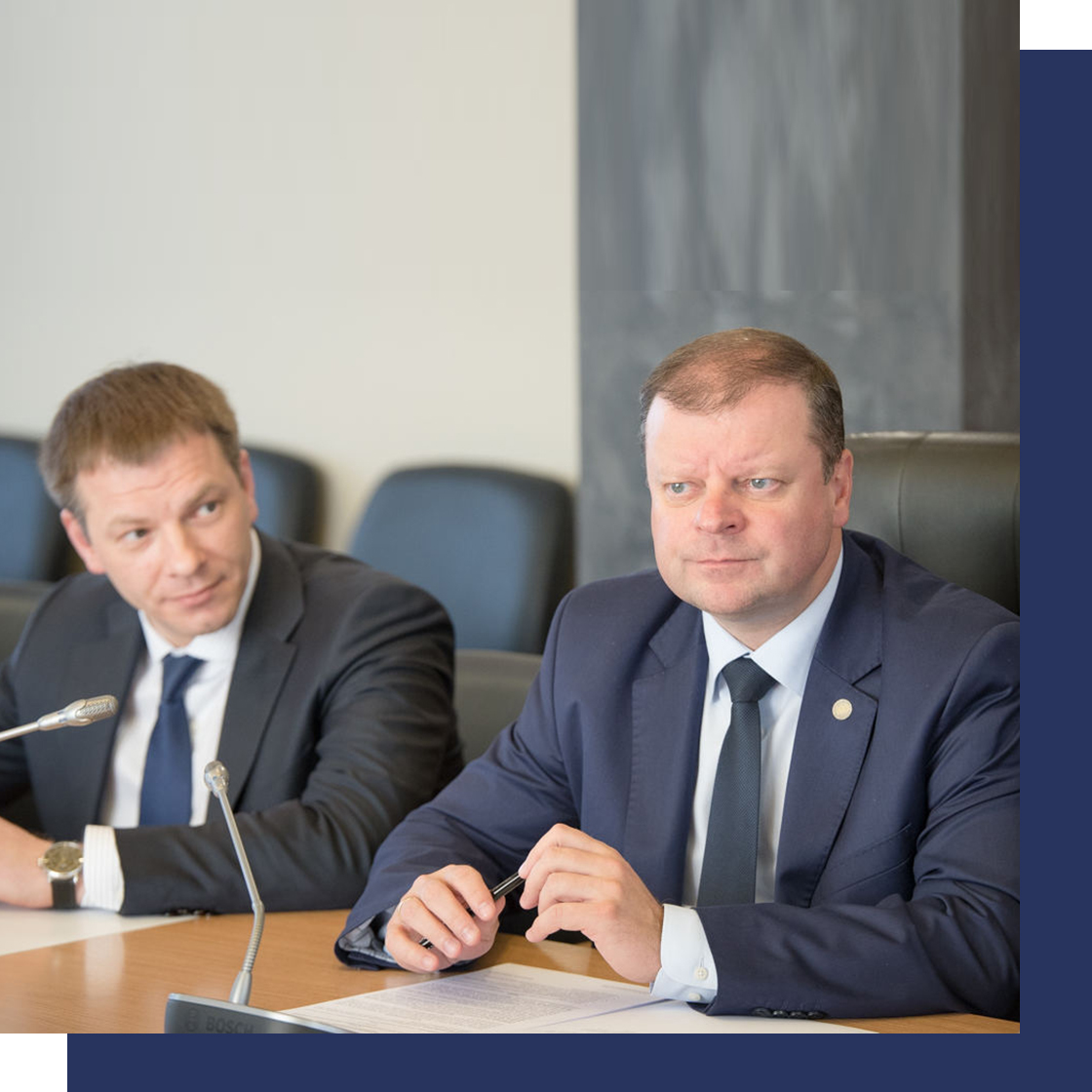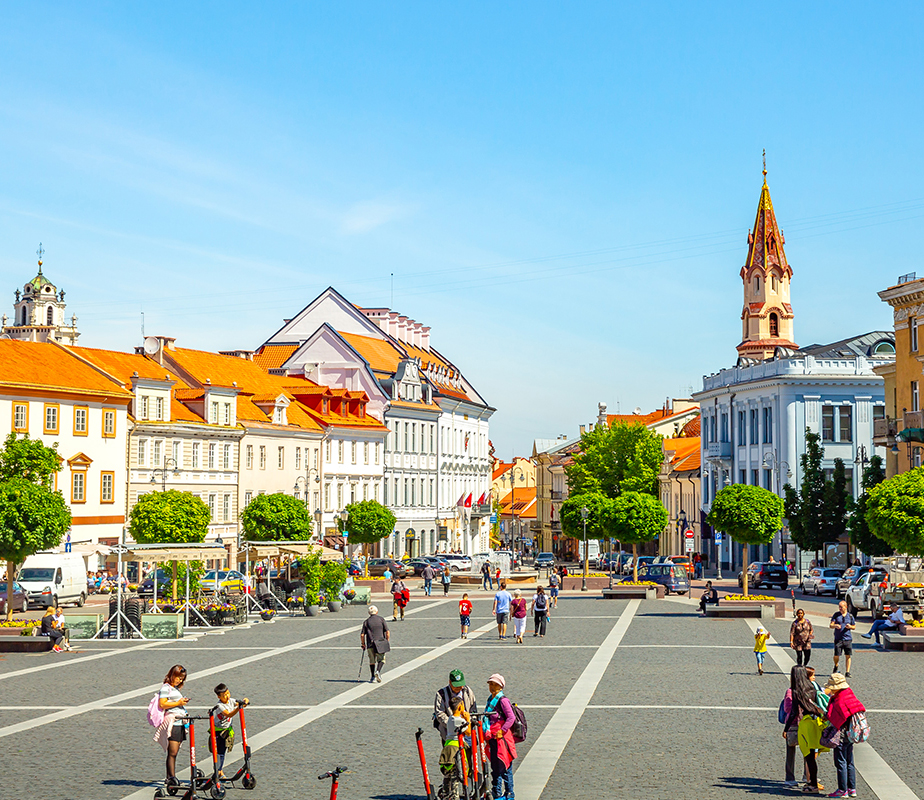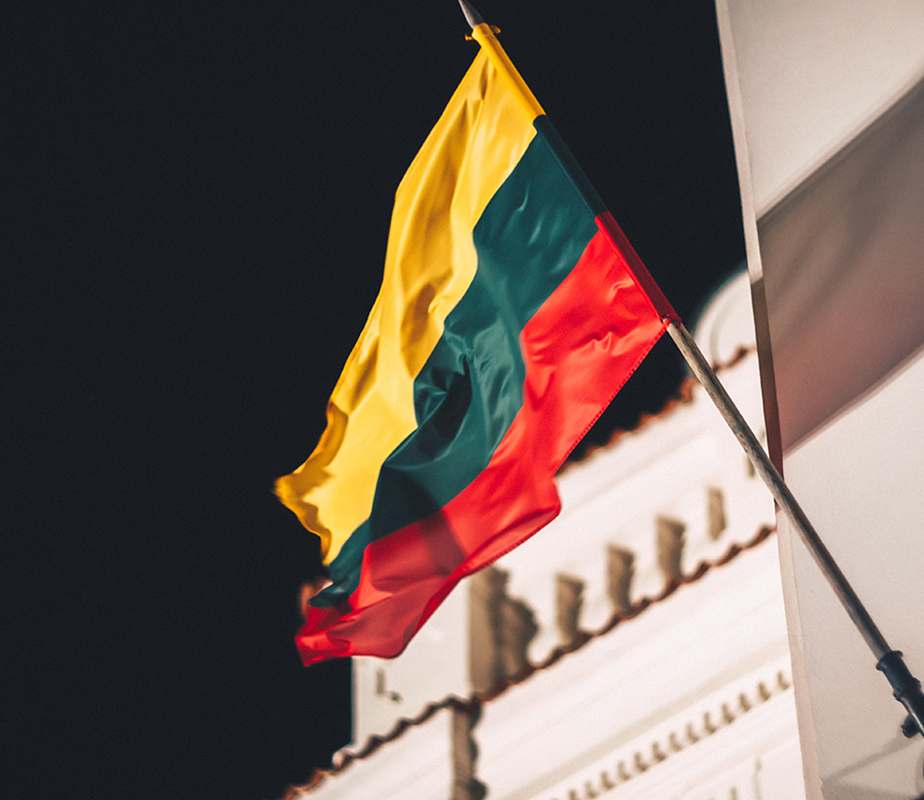Innovation and fast manoeuvring deliver effective fight against pandemic

Explaining Lithuania’s success in flattening the coronavirus curve, Skvernelis noted:” We were the first to declare an emergency in the EU, we took concrete actions and measures, and we constantly aim at being at the forefront of the fight against the disease.” Those measures included closing air, sea and road borders plus all non-essential businesses in March, a major COVID-19 testing program and a wide range of more advanced solutions created by an extensive ecosystem of innovation that has made the country a European center for technology.
Examples of these are the digitalization of health services that are now accessible via an e-health portal, the entire education system has gone digital and an online initiative from development agency Enterprise Lithuania has connected over 1,000 fledgling e-shops with mentors. One startup’s app that promotes mental health and startup Bankera’s fintech solution for businesses looking for short-term financing both won international competitions to find innovative ways to deal with coronavirus, while Rubedo Sistemos, a robotics firm, is developing a robot that disinfects public spaces without exposing people to infection.
A strong return to form for the economy
Since 23 April, Lithuania has been able to start lifting its restrictions in a process it expects to complete by 31 May, with shops, restaurants, museums and hotels being a few of the activities that have reopened. In addition, as well as unrestricted movement within the Baltics, the country is welcoming other EU citizens for work, business or educational visits, although most must currently undertake a quarantine period, and further easing of travel limitations is expected soon. With COVID-19 under control, the government is focused on rebooting one of the EU’s most rapidly expanding, diverse and entrepreneurial economies that grew by 3.9 percent in 2019. The country’s pre-COVID fiscal position will help it bounce back faster and more strongly than others in Europe, Minister of Finance Vilius Šapoka told Žinių Radijas radio: “We had the highest credit rating in our history, debt levels of our households, government and firms were low in comparison to other countries and our finances were managed in a responsible manner.” Lithuania also benefits from a stable political environment, eurozone membership and, especially under the stewardship of Skvernelis’ government, a growing international presence in institutions such as the EU—where it has been a leader in pushing for more integration in areas like transport, energy and capital markets—and NATO, in which it works closely with the U.S. as part of the alliance’s eastern flank.


IMF forecasts a strong 2021 for Lithuania
The international community agrees with Skvernelis that “the potential is clearly visible and opportunities are great,” for the Lithuanian economy. Although it is expected to contract in line with the European average in 2020, the International Monetary Fund is predicting growth of 8.2 percent in 2021, while the continent as a whole is forecast to reach just 4.4 percent.
Some unexpected industries, such as tourism, are already witnessing signs of recovery. In recent years, the sector has increased considerably, with tourists enjoying many factors that also make temperate Latvia a great place to live and work. Capital Vilnius, for instance, is vibrant, modern, multicultural and green but also has an old town that is a UNESCO World Heritage Site. On the other hand, resorts on the Baltic Sea like Palanga—where a number of hotels have become almost fully booked for certain periods since travel restrictions within the Baltics were lifted—offer idyllic white sands and scented pines.

